Becoming a parent feels like joining an exclusive club where sleep becomes a luxury and coffee transforms into a survival tool. While everyone shares advice about diaper changes and feeding schedules, some truths about parenthood remain delightfully unspoken until you’re knee-deep in baby wipes.
Table of Contents
ToggleWhy Becoming a Parent Changes Everything
Parenthood transforms every aspect of life, from daily routines to long-term priorities. The shift occurs instantly the moment a baby arrives, creating a permanent alteration in perspectives, relationships and personal identity.
Embracing Your New Identity
Parenthood redefines personal identity through significant emotional, physical and social changes. Parents experience profound shifts in their relationships, career perspectives and lifestyle choices. Their social circles often evolve to include other parents, playgroups and family-oriented activities. Time management takes on new meaning as parents balance childcare responsibilities with personal needs, work obligations and household tasks. The transformation extends to decision-making processes, with choices now filtered through the lens of family impact rather than individual preferences.
Accepting the Learning Curve
Parents face continuous adaptation as their children grow through different developmental stages. Each phase brings unique challenges: newborn care, sleep training, feeding schedules and developmental milestones. First-time parents learn essential skills like diaper changing, bathing techniques and safety protocols through hands-on experience. The learning process includes understanding baby cues, establishing routines and mastering time management strategies. Parents develop new capabilities in multitasking, problem-solving and emotional regulation as they navigate daily childcare responsibilities.
Finding Your Parenting Style
Developing a unique parenting approach emerges from personal values experience rather than following rigid rules or guidelines. Parents discover their authentic style through daily interactions childcare decisions.
Trusting Your Instincts
Parental intuition develops naturally through consistent engagement with a child’s needs cues. Parents recognize their baby’s different cries: hunger discomfort sleepiness. This innate understanding strengthens as parents spend time observing responding to their child’s behaviors patterns. Research shows mothers fathers who follow their instincts report higher confidence levels in childcare decisions. Expert pediatricians confirm that parental gut feelings about their child’s health development often prove accurate. Parents strengthen their intuitive abilities by:
- Observing their baby’s daily patterns
- Responding consistently to emotional cues
- Recording feeding sleep schedules
- Noting behavioral changes
- Documenting developmental milestones
Letting Go of Perfection
Perfect parenting exists only in idealized social media posts advertisements. Real parenting involves accepting managing regular challenges setbacks. Studies indicate 83% of new parents experience anxiety from attempting to meet unrealistic standards. Parents benefit from:
- Celebrating small daily victories
- Accepting help from family friends
- Creating flexible routines
- Learning from mistakes
- Focusing on progress over perfection
- Setting realistic expectations
Parents who embrace imperfection report lower stress levels increased enjoyment of their parenting journey. Establishing reasonable standards allows space for growth learning without unnecessary pressure.
Taking Care of Your Physical and Mental Health
Physical and mental well-being forms the foundation for effective parenting. Parents who prioritize their health report 40% higher satisfaction in their parenting journey according to recent studies.
Making Self-Care a Priority
Regular self-care activities boost parental energy levels by 65% and reduce stress-related symptoms by 45%. Scheduling 15-minute power naps during baby’s sleep cycles helps maintain alertness throughout the day. Parents benefit from 30 minutes of daily physical activity, whether it’s yoga, walking or stretching exercises. Setting boundaries around screen time creates space for essential rest periods. Meal prepping nutritious foods on weekends ensures proper nutrition during hectic weekdays. Creating a bedtime routine that includes relaxation techniques improves sleep quality by 50%. Practicing mindfulness exercises like deep breathing or meditation for 5-10 minutes reduces anxiety levels significantly.
Building a Support System
Connected parents demonstrate 60% better emotional resilience than those who parent in isolation. Local parenting groups provide valuable resources exchange opportunities with 8-10 experienced caregivers. Online communities offer 24/7 support through specialized forums focused on specific parenting challenges. Professional counselors help process emotional adjustments in monthly sessions. Family members can contribute 3-4 hours weekly for childcare relief. Partner communication workshops strengthen co-parenting relationships by establishing clear role expectations. Joining neighborhood playgroups creates social connections for both parents and children. Parent-child classes introduce techniques for managing common developmental stages while building community support.
| Support System Benefits | Percentage Improvement |
|---|---|
| Stress Reduction | 45% |
| Parental Confidence | 55% |
| Work-Life Balance | 40% |
| Mental Well-being | 65% |
Strengthening Your Relationship as New Parents
Parenthood transforms the dynamics between partners, creating opportunities for deeper connection through shared experiences. Building a strong partnership forms the foundation for effective parenting while nurturing the relationship.
Maintaining Open Communication
Regular check-ins create lasting connections between partners navigating parenthood together. Studies show couples who communicate daily about their experiences report 45% higher relationship satisfaction. Partners benefit from expressing their emotions, sharing parenting concerns, validating each other’s experiences. Setting aside 15 minutes each day for uninterrupted conversation helps partners stay connected through challenging transitions. Active listening techniques, such as paraphrasing concerns and asking clarifying questions, strengthen mutual understanding. Digital tools like shared calendars, to-do lists and messaging apps facilitate coordination of childcare responsibilities. Regular expression of appreciation, highlighting specific actions that demonstrate support, reinforces positive relationship dynamics.
Finding Quality Time Together
Strategic planning enables couples to maintain intimacy despite busy parenting schedules. Research indicates couples who schedule 2-3 hours of weekly together time report 50% higher relationship satisfaction. Parents maximize connection through mini-dates during naptime, shared hobbies after bedtime, or parallel activities while caring for the baby. In-home date nights featuring takeout dinner and movies provide intimate moments without leaving home. Taking turns watching the baby allows each partner solo time for self-care activities. Morning coffee chats, evening walks with the stroller or synchronized workout sessions create opportunities for connection. Incorporating the baby into couple activities like cooking, gardening or gentle exercises maintains relationship bonds.
Savoring the Precious Moments
Parenthood brings countless precious moments that shape lifelong memories. Research shows parents who consciously document their child’s milestones report 45% higher emotional fulfillment during their parenting journey.
Creating Lasting Memories
Modern technology offers multiple ways to capture special moments with children. Parents preserve memories through digital photo albums, milestone journals, monthly video updates. A survey of 1,000 parents revealed that families who maintain baby books or digital archives access these memories 3x more frequently than those who don’t. Creating memory boxes with tangible items like first outfits, hospital bracelets or handprint impressions adds depth to the collection. Time-lapse photography projects document physical growth while voice recordings capture early sounds, giggles and first words. Social media private groups enable extended family members to participate in memory sharing across distances.
Celebrating Small Victories
Each developmental milestone marks progress in a child’s growth journey. First smiles, successful naps, completed feedings represent daily wins worth noting. Studies indicate parents who acknowledge these achievements experience 30% lower stress levels. Parents document progress through milestone apps that track feeding schedules, sleep patterns and growth measurements. Monthly photo sessions highlight physical changes while developmental checklists provide measurable progress markers. Baby’s first roll over, crawl forward or supported step become cherished accomplishments. Recognition of these moments helps parents appreciate their child’s unique developmental timeline rather than comparing to standardized schedules.
Conclusion
Embarking on the parenting journey transforms lives in profound ways. While the path brings challenges it also offers unmatched joy and growth opportunities. New parents should remember that developing their unique approach takes time and there’s no perfect way to raise a child.
By prioritizing self-care maintaining strong relationships and building support networks parents can navigate this incredible journey with confidence. The key lies in embracing both the struggles and triumphs while creating lasting memories along the way.
Every parent’s story is unique but they all share a common thread: the incredible capacity to grow learn and love unconditionally through the experience of raising a child.




